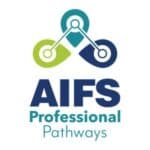A Guide to J-1 Visa Program Administration for Host Companies

Companies across the U.S. can take advantage of the J-1 Visa Intern and Trainee programs to welcome talent from around the globe. This program benefits companies with global training rotations, international clients or business partners, and those looking to promote a culture of diversity and learning in the workplace.
AIFS Professional Pathways, a Department of State designated J-1 visa sponsor, supports your company throughout the application process and the program’s duration. In this guide, we address common questions about the administration of the J-1 visa program to help host companies navigate the process with ease and ensure compliance.
When Can My J-1 Intern or Trainee Legally Participate in Business Activities at Our Company?
Training is permitted only during the J-1 visa training dates specified on the DS-2019 Certificate of Eligibility issued at the time of visa sponsorship approval. These dates are also outlined on the DS-7002 Official Training Plan, which details the program’s activities.
J-1 holders may arrive up to 30 days before the program’s start date and may depart up to 30 days after the program’s end date—these blocks of time before and after the program start date are referred to as “grace periods.” However, they are not allowed to train or work during this time.
To adjust a participant’s start or end date, contact AIFS Professional Pathways in advance to request a program amendment or extension.
Is a J-1 Holder Subject to Taxes or Other Payroll Deductions?
J-1 visa holders, classified as non-residents or resident aliens participating in temporary cultural exchange programs, are subject to federal, state, and local income taxes and applicable deductions if they receive income.
However, due to their temporary non-resident status, J-1 holders are exempt from FICA (Social Security and Medicare contributions) and FUTA (unemployment benefits).
J-1 participants must file tax forms for any period they participated in their program in the U.S. For example, if they train in the U.S. from May to August in 2025, they must file taxes by April 15, 2026, regardless of whether they received income.
Can My J-1 Holder Participate in Remote Training?
On-site activities are the preferred standard for cultural exchange programs, but hybrid work is permissible as long as it meets the requirements for federal guidance for J-1 training programs:
- J-1 training programs must take place on-site at least 60% of the work week, so the equivalent of two days per week may be remote
- The participant’s tasks can be completed remotely
- The J-1 holder has a functional work environment outside of the training site
- Virtual supervision is accessible
Are J-1 Holders Eligible for Employee Benefits?
J-1 holders should receive benefits aligned with your company’s policies and equal to those provided to Americans in the same position and employment status.
Paid sick leave and vacation time is not required for J-1 holders, but host companies should apply policies consistently. J-1 participants should, at minimum, have the ability to take reasonable leave for illness or emergencies without penalty. Please provide participants with the related policies and protocols at the start of their program.
Benefits such as retirement, Workers’ Compensation, and health insurance are not required.
Can the J-1 Holder Be Categorized as a ‘Contractor’ for Payroll Purposes?
J-1 participants should not be categorized as contractors when added to payroll, as their role focuses on training and cultural exchange rather than independent work. Contractors typically provide services independently, while J-1 holders are trainees engaged in structured learning programs designed to enhance their skills and promote cultural exchange. Properly classifying J-1 participants ensures compliance with federal guidelines.
Can a J-1 Participant Obtain a Social Security Number?
Yes, it’s recommended that J-1 participants obtain a Social Security Number (SSN). J-1 holders have U.S. work authorization, making them eligible for an SSN. Participants may apply for an SSN only upon arriving in the U.S. and after validating their visa with AIFS Professional Pathways.
The application process through the Social Security Administration can take up to four weeks. While this may cause delays with payroll, it should not prevent the participant from beginning their program on the scheduled start date.
For payroll or E-Verify purposes, many systems provide an option to indicate that an SSN is pending. Alternatively, you may be able to enter the participant’s passport or SEVIS number as a placeholder.
Can My Company Extend a Current J-1 Holder’s Program for a Longer Period of Time?
Yes, you can extend a current J-1 holder’s program if it falls within the period they are authorized to train in the U.S. according to their visa and program type. The J-1 visa allows interns to legally train in the U.S. for up to 12 months, and trainees up to 18 months (12 months for Hospitality programs). As long as those limits are not exceeded, a J-1 visa program may be extended. For example, an intern program originally approved for six months may be extended for another six months.
An extension request must be approved through a standard application process before the original program end date. This process involves updating the participant’s federal documents and providing a clear justification for the extension, such as the opportunity to pursue additional training, complete a specific project, or achieve an unmet program objective.
Please contact AIFS Professional Pathways to request an extension application.
Can My Company Shorten or Cancel a Current J-1 Holder’s Program?
If you need to shorten or cancel a current J-1 holder’s program, please notify AIFS Professional Pathways in advance with the rationale and the new program end date. We encourage host companies to fully execute the program, even if additional mentorship is needed, but we understand that changing resources, project priorities, or participant circumstances or performance may prevent a program from continuing as planned. In these cases, you may shorten or cancel a J-1 visa program.
Can My Company Make Updates to a Current J-1 Holder’s Program?
Host companies may make updates to a current J-1 holder’s program if they receive prior approval. All program dates, activities, supervisors, and wages are reviewed for initial visa sponsorship approval and are documented in federal databases. Therefore, host companies must first request updates or changes to J-1 programs with AIFS Professional Pathways to ensure compliance with federal regulations. After approval, we will update the J-1 holder’s records, and program updates can take place.
If a J-1 Holder is Involved in an Emergency Situation, What Steps Should My Company Take?
If a J-1 participant is in an emergency, you should call 911 if appropriate, then immediately notify AIFS Professional Pathways. We are here to support the J-1 holder, liaise with their health insurance provider, and in some cases, report incidents to the U.S. Department of State. Our number one priority is participants’ wellbeing and safety.
You may remind your international participant that all J-1 holders sponsored by AIFS Professional Pathways are enrolled in compliant health insurance coverage.
AIFS Professional Pathways can be contacted anytime in cases of emergencies at 1-800-360-7066 or ProfessionalPathways@aifs.com (e-mail responses take place during business hours). AIFS Responsible Officer, Shaina Katz, may be contacted at skatz@aifs.com or 203-399-5132. The Department of State 24-hour Emergency Helpline is also available by telephone toll-free within the US at 1-866-283-9090 and email at jvisas@state.gov.
What Should Supervisors Do to Complete AIFS Professional Pathways Program Evaluations?
Supervisors are mandated by federal regulation to complete program evaluations administered by the sponsor (AIFS Professional Pathways). Programs longer than six months require a midterm evaluation, and all programs require a final evaluation. Evaluations should be completed promptly. If evaluations are not completed, the program is deemed out of compliance with federal regulations.
The program supervisor listed on the federal documents will receive the request from us with a link to complete the survey. If they are no longer the supervisor, the evaluation request should not be neglected or completed by someone unfamiliar with the program. AIFS Professional Pathways should be notified immediately if a different individual is serving as supervisor and is therefore better suited to complete the evaluation.
Can My Company Hire the J-1 Participant at the End of Their Program for a Full-Time Position?
The J-1 visa is a temporary cultural exchange program, with the expectation that participants depart the U.S. after their end date to apply or share their newly acquired knowledge. When extending visa sponsorship, it is assumed that both the participant and host intend for the program to end as planned. Hiring the participant overseas following their U.S. training is a perfectly acceptable use of the visa program. However, the J-1 visa should not be used to extend the participant’s stay in the U.S. for a longer duration. The Host and Participant agreements that are signed with AIFS indicate your commitment not to support a visa transfer or help the participant remain in the U.S.
Repeatedly hiring J-1 holders in the U.S. post-program or through visa transfers goes against the intent of the program and may result in your company’s inability to host J-1 participants in the future.
Can My Company Provide the J-1 Intern or Trainee with Housing?
Housing support for international participants is always appreciated, along with safe, vetted, and affordable corporate housing, if available. Should company housing or housing support result in payroll deductions or other financial obligations for the J-1 holder, you must notify them in advance.
A J-1 holder should not be provided room and board in the home of their supervisor or at the training site.
Start Your Host Company’s J-1 Journey Today with AIFS Professional Pathways
The J-1 Intern and Trainee programs offer incredible, long-lasting benefits to U.S. companies, all while giving you the chance to engage in valuable cultural exchange. Although the process of applying for the J-1 visa program, gaining approval, and staying up to date with program changes can seem challenging, don’t worry—AIFS Professional Pathways is here to guide you at every step of the way. As your program sponsor, we’ll support you from start to finish, ensuring a smooth experience.
Ready to discover how international talent can help drive your company’s success?
AIFS Professional Pathways
AIFS Professional Pathways administers J-1 visa sponsorship for international Interns and Trainees pursing professional opportunities with multi-sector businesses across the U.S. This division of AIFS supports U.S. companies, immigration firms, universities, partners, students, and professional at all levels.
